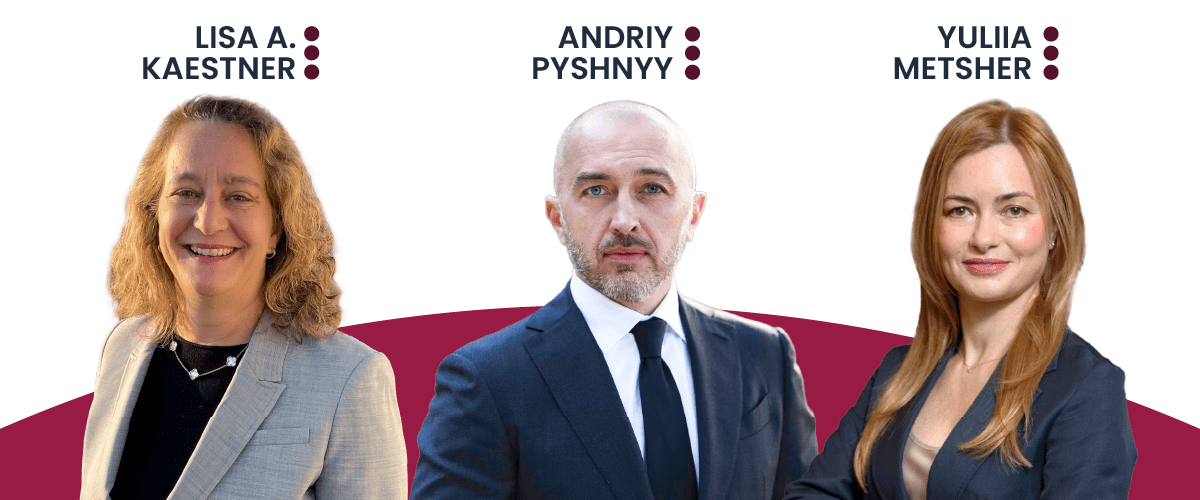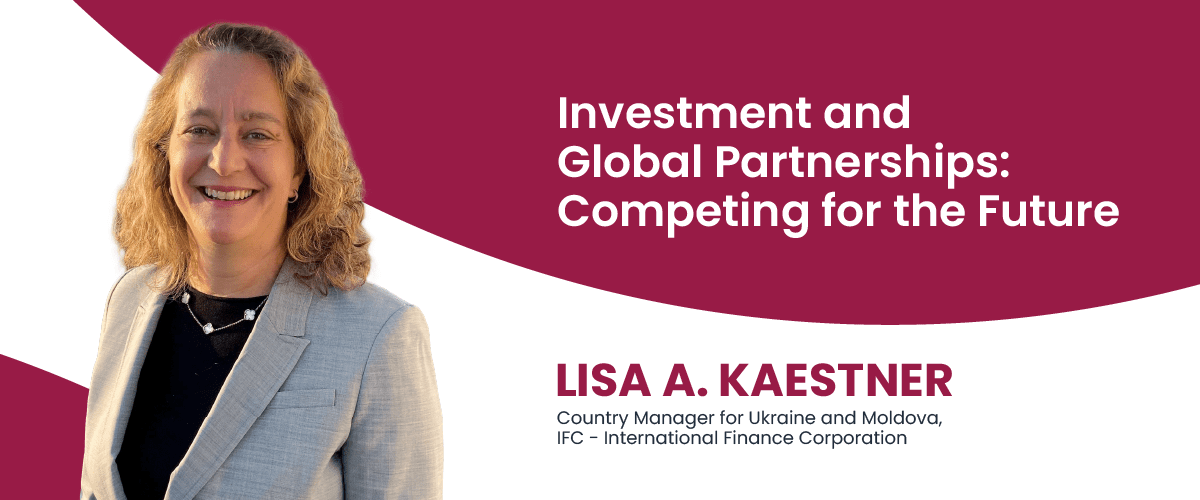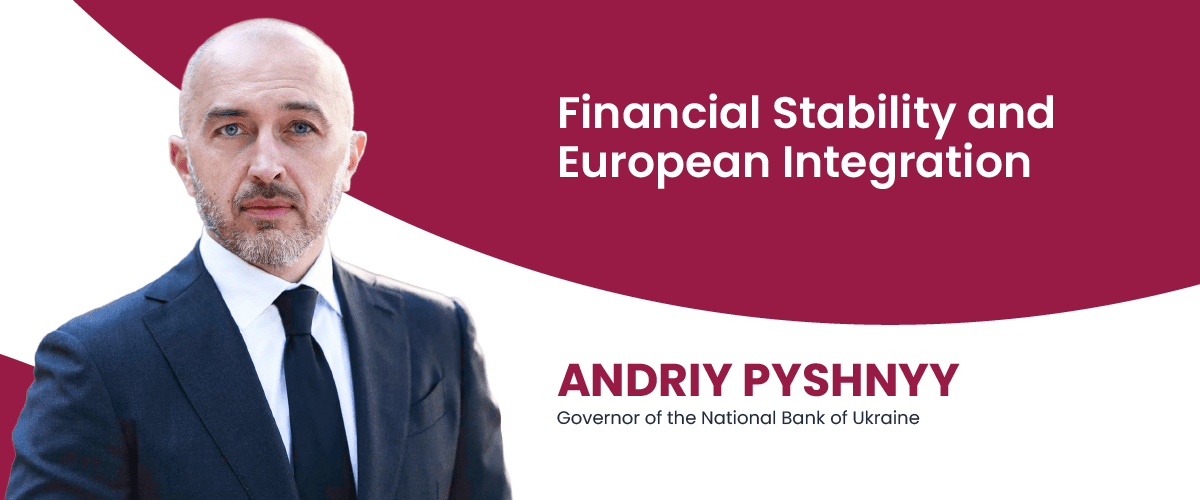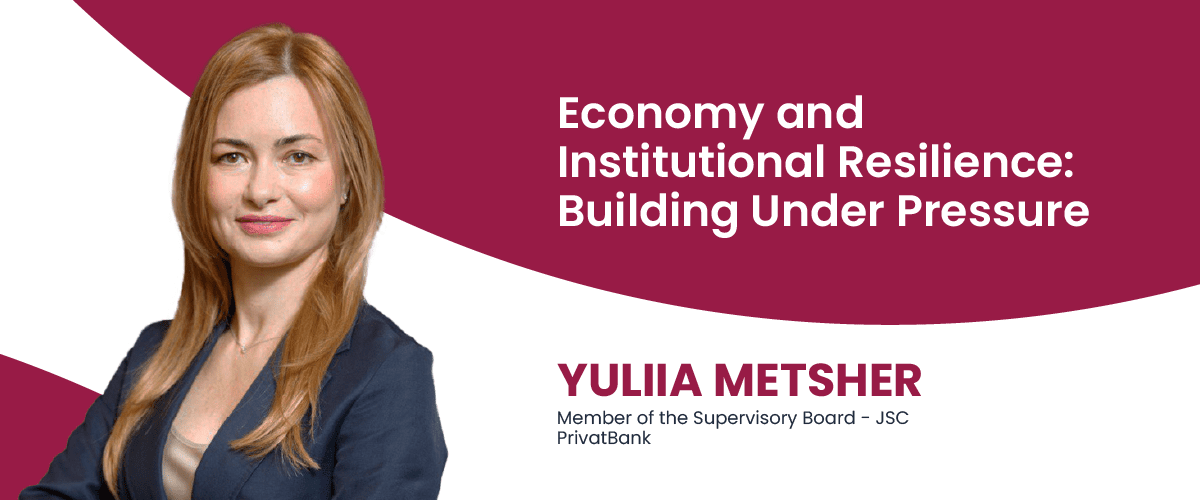
Ukraine at the Crossroads: Balancing War, Recovery, and Global Integration
2025-09-09
Leading figures from Ukraine’s financial and economic spheres have shared their perspectives on the strategies shaping Ukraine’s present and its vision for the future.
For Ukraine, resilience is not a choice — it is a necessity. More than three years into Russia’s full-scale invasion, the country continues to fight on multiple fronts: defending its sovereignty, protecting its people, and laying the groundwork for recovery. These struggles are deeply interconnected. Security, diplomacy, economic recovery, and investment are not separate challenges but threads of one fabric that will determine Ukraine’s place in the global order.
To better understand how these challenges are being met, leading figures from Ukraine’s financial and economic spheres have shared their perspectives. Yuliia Metsher, Member of the Supervisory Board at JSC PrivatBank, Andriy Pyshnyy, Governor of the National Bank of Ukraine, and Lisa A. Kaestner, Country Manager for Ukraine at the International Finance Corporation (IFC), each bring unique expertise on resilience, financial stability, and investment.

Their insights shed light on the strategies shaping Ukraine’s present and its vision for the future.
Investment and Global Partnerships: Competing for the Future

Having spent much of the past two years in Kyiv, experiencing attacks firsthand and following international discussions closely, I often reflect on the profound implications of Russia’s aggression for geopolitics and human values — not only for Ukraine but for the global system and the future world my children will live in.
As an economist working at an international financial institution, however, I tend to think most about Ukraine’s economic challenges. While less existential than the geopolitical struggle, Ukraine’s economic success will also determine the well-being of its people and its place in the world economy.
One of the greatest challenges is securing the $500 billion needed for reconstruction over the next decade. While Ukraine receives substantial public support, this will not be enough. I work for IFC, and our recent research shows that roughly one-third of this amount — about $170 billion — could be financed by the private sector, provided the right reforms and mechanisms are in place.
As an advocate for investment in Ukraine, I was excited to see that our report about private sector opportunities for financing Ukraine was included in an upbeat article in the Financial Times on August 28. Encouragingly, the author finds that over 100 companies are considering opportunities in Ukraine. But the challenge is moving from ‘eyeing’ to ‘investing.’ Ukraine must compete globally for financing, as international companies can choose where to invest.
So far, most investments have come from existing players expanding their operations. One notable exception was NJJ, a large French telecom holding company, which joined the merger that created Datagroup-Volia-lifecell in 2024. This shows the potential of foreign direct investment (FDI), which not only brings capital but also market access, value chain integration, technology, and know-how.
Yet, attracting FDI is particularly difficult at a time when global FDI flows are at their lowest since 2005. To stand out, Ukraine must emphasize its comparative advantages: skilled labor, agricultural resources, and the prospect of EU accession. With ‘friendshoring’ reshaping global investment flows, Ukraine may also benefit from being aligned with Western economies.
The World Bank Group is supporting Ukraine in developing a strategy to attract investment to competitive sectors. Success will require a credible plan to improve the investment climate, reduce risks, and show flexibility. Immediate priority actions should send strong signals to investors, while longer-term reforms build confidence.
Ultimately, FDI is not only an economic tool but also part of Ukraine’s broader security. By embedding itself deeper into the global economy, Ukraine will strengthen international stakes in its sovereignty — and make it harder for the world to look away in the face of aggression.
Financial Stability and European Integration

As long as the full-scale war continues, it remains the defining challenge for Ukraine — including for our economy and financial sector. russian aggression threatens to cause a protracted decline in our economic potential through the loss of people, territory, and production facilities.
That makes it our task to do everything in our power to keep rallying the free world around Ukraine, particularly in mobilizing financing. Continued cooperation with the International Monetary Fund will play a crucial role in this effort.
Another significant challenge — and opportunity — for Ukraine is European integration. We are moving forward as rapidly as possible. According to the latest assessment by external consultants, our banking sector’s regulatory equivalence has already reached 75–77%, up from about 50% at the beginning of 2022. However, to move further, we need political will from EU member states to support Ukraine’s accession sooner rather than later.
At the National Bank of Ukraine, we face challenges every single day, especially since February 24, 2022. But we know how to deal with them effectively, and we are constantly making efforts to meet them head-on.
Economy and Institutional Resilience: Building Under Pressure

Any war is a tragedy, inhuman in its scope. Nothing could have prepared Ukraine for the complex challenges we have faced on the world stage during more than three and a half years of full-scale russian invasion. Yet, Ukraine continues to demonstrate resilience.
As a member of the Supervisory Board of PrivatBank — Ukraine's largest state-owned bank, which serves millions of customers and supports public finances — I see how economic issues are deeply intertwined with security, diplomacy, and investment.
The key challenges for Ukraine include: securing sustained international support, attracting foreign investment, addressing labor shortages caused by population displacement and mobilization, rebuilding and sustaining large-scale infrastructure, mitigating economic decline, ensuring food security amid disrupted supply chains, and addressing corruption risks during the recovery period.
Undoubtedly, the greatest challenge for Ukraine is to end the ongoing war with russia on fair terms. The war has caused immense destruction, mass displacement, severe economic problems, and a social and psychological crisis for its people. Achieving peace is impossible without constant and reliable financial, military, and diplomatic support from international partners. Ukraine’s top leaders, alongside foreign allies, are making huge efforts to secure a sustainable and reliable peace — one that ensures sovereignty, territorial integrity, and strong security guarantees. EU and NATO accession must be part of those guarantees.
Another major challenge is attracting international assistance to rebuild the economy. According to the latest World Bank estimates, recovery over the next decade will require approximately $524 billion. The destruction of cities, infrastructure, and businesses demands long-term, complex restoration.
PrivatBank contributes by maintaining stability, delivering strong profits, and supporting the economy. In 2024, the bank’s pre-tax profit reached UAH 81 billion, an 11% increase from 2023. In the first half of 2025, net income after a 25% tax amounted to UAH 34.9 billion, with income tax payments of UAH 11.1 billion. Despite the ongoing war, businesses and households continue to adapt, and the productivity of many sectors is growing. With a net loan portfolio exceeding UAH 130 billion as of mid-2025, PrivatBank acts as a reliable partner for both the state and private enterprises.
For me personally, the greatest source of pride is our dedicated team, guided by the values we live by: putting clients at the center, building trust through transparency, strengthening teamwork, caring for the country’s future, and driving innovation.
Another priority for Ukraine is attracting foreign direct investment (FDI) and developing critical supply chains. Investment attractiveness is closely tied to business security, which today can only partially be addressed through war risk insurance. PrivatBank actively works with international financial organizations—including the EBRD, BGK, the European Commission, the World Bank, and others — to provide Ukrainian clients access to international resources and instruments.
At the same time, Ukraine faces severe labor shortages. Millions have been displaced, with 6.9 million still abroad according to the OECD. Without people, there is no economy. The government is launching special programs to bring Ukrainians back, offering housing, jobs, social support, and even a multiple citizenship mechanism. Like many employers, PrivatBank is also dealing with a shortage of personnel, while attracting foreign specialists remains difficult due to security risks.
In my view, Ukraine faces extraordinary challenges, but also has extraordinary potential. Success depends on the strength of our army, the dynamism of our economy, and the effectiveness of our diplomacy. Above all, investment and reform are the keys to a sustainable future.
Ukraine’s challenges are immense, but so is its determination. Security, diplomacy, economy, and investment are not separate battles but one shared struggle for sovereignty, renewal, and growth.
The war has tested every part of our society. It has displaced millions, damaged industries, and shaken daily life. Yet it has also revealed resilience — people adapting, institutions reforming, and partners standing with us in solidarity.
The road ahead will not be easy. Recovery requires more than endurance. It calls for trust from international allies, bold reforms at home, and the confidence of investors who see Ukraine not just as a risk but as a future hub of opportunity.
Step by step, Ukraine is moving toward that future. By strengthening its institutions, deepening ties with Europe, and building a dynamic economy, the country can turn survival into renewal.
This is not only Ukraine’s fight — it is a test of how the world responds when freedom and sovereignty are under threat. And Ukraine is determined to show that even in the face of immense challenges, hope and progress remain possible.
